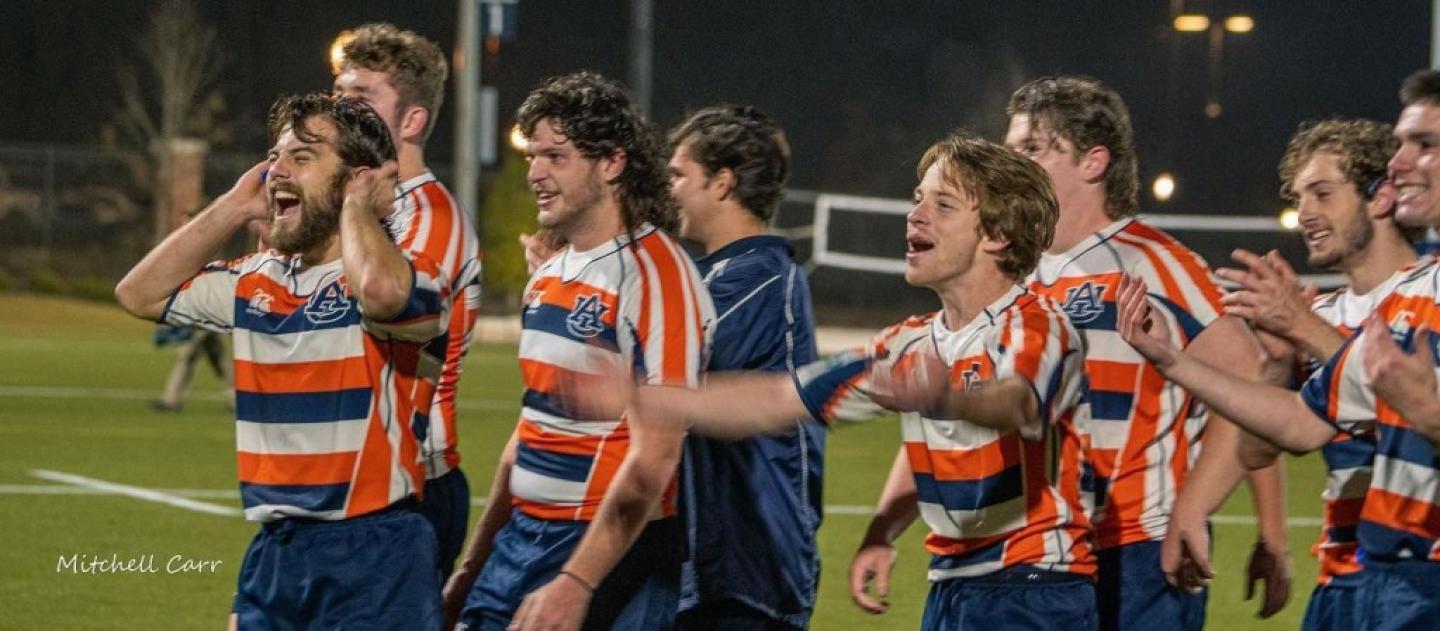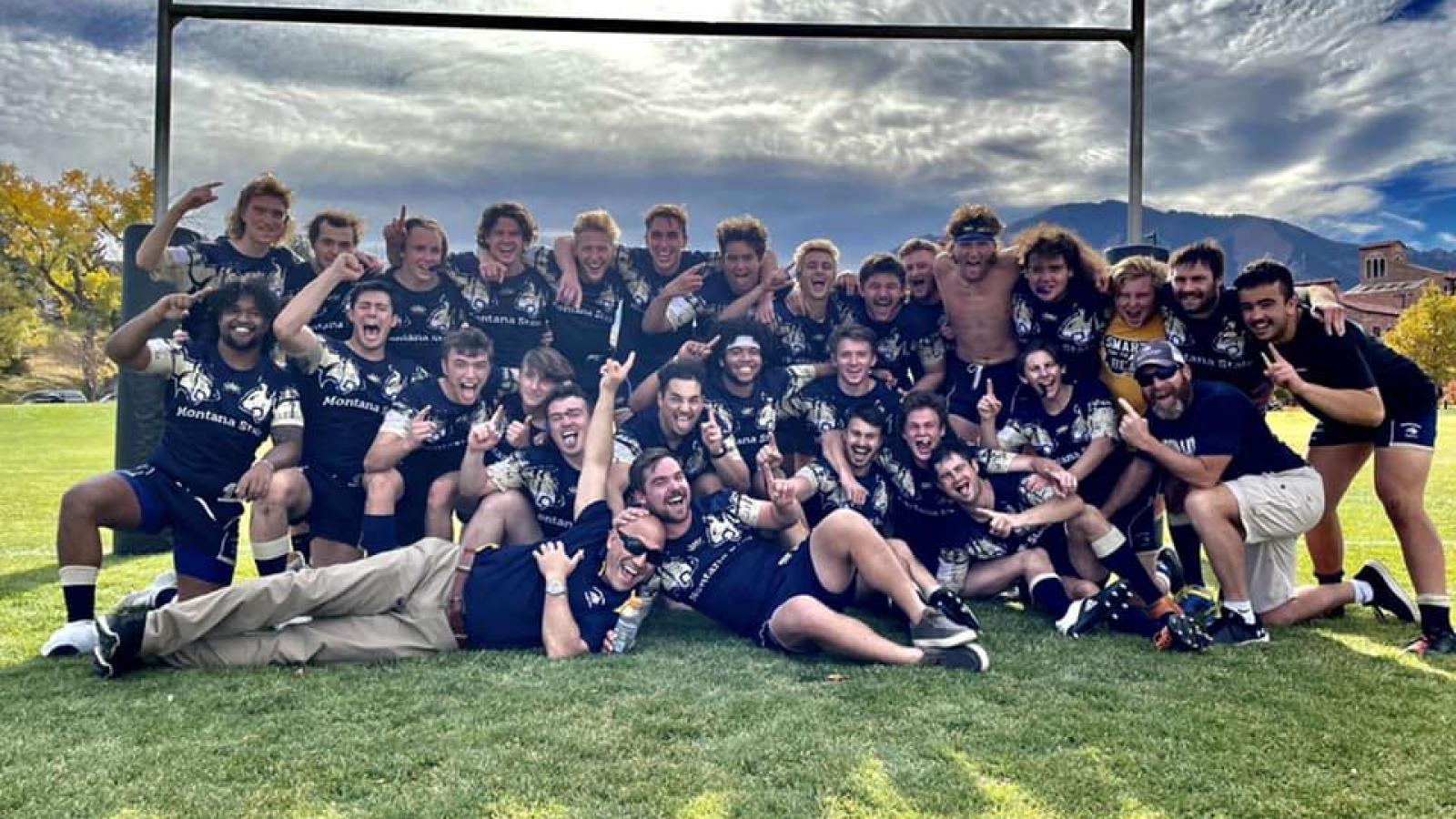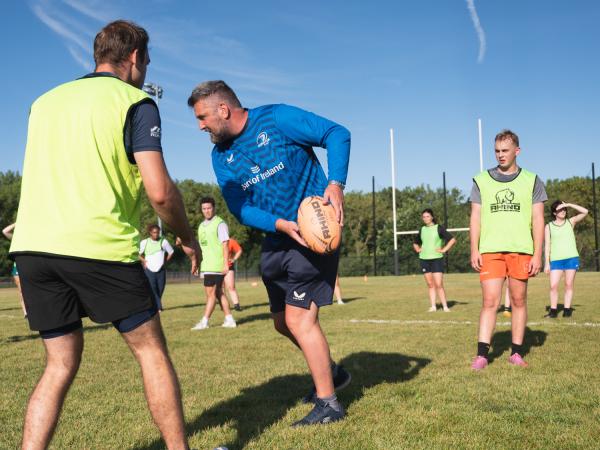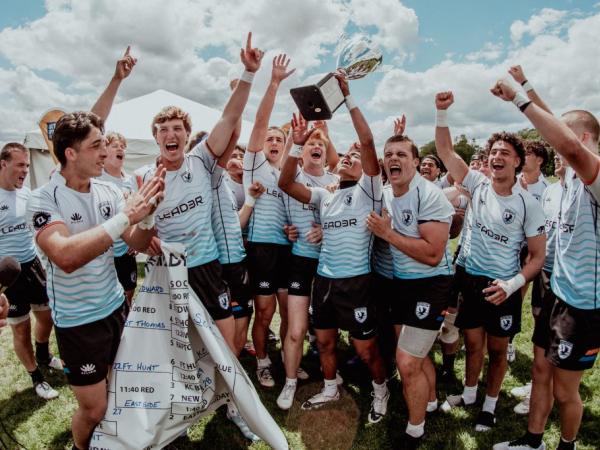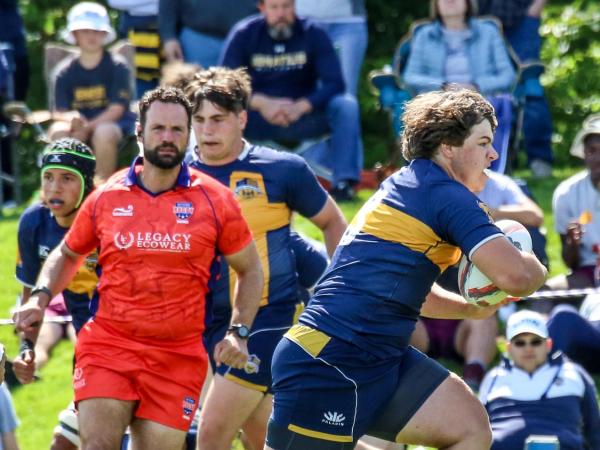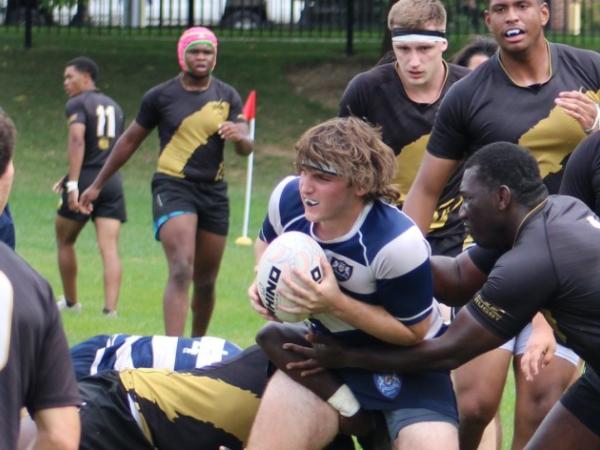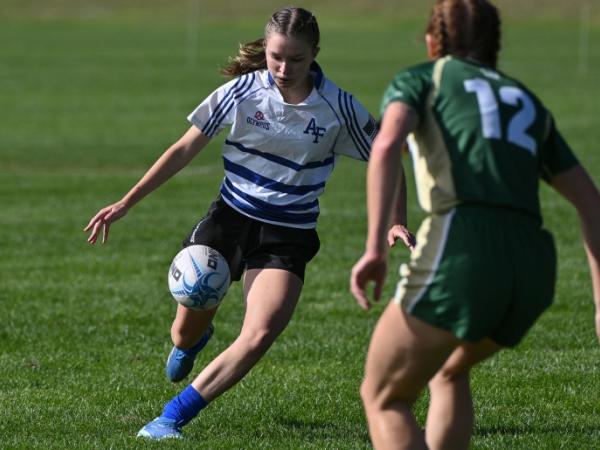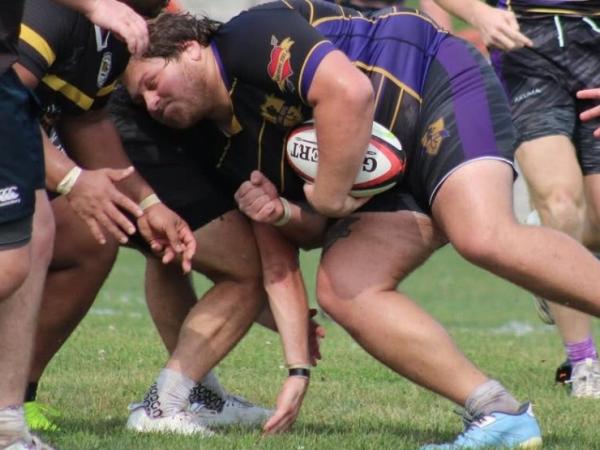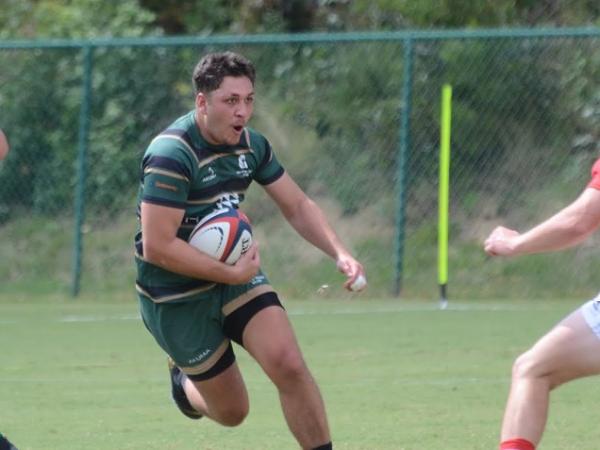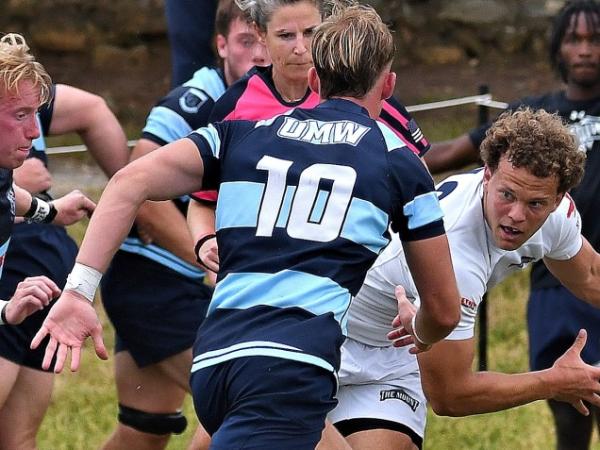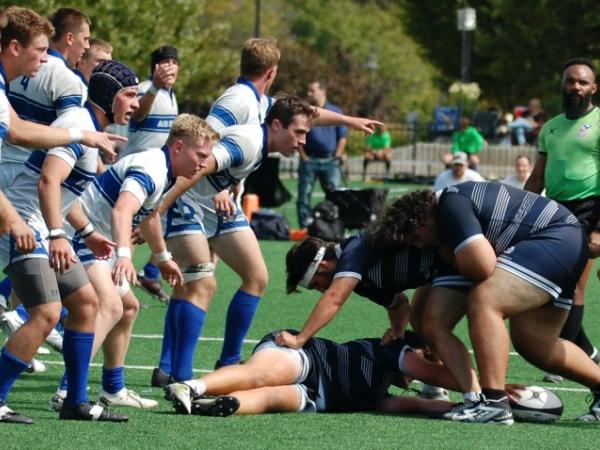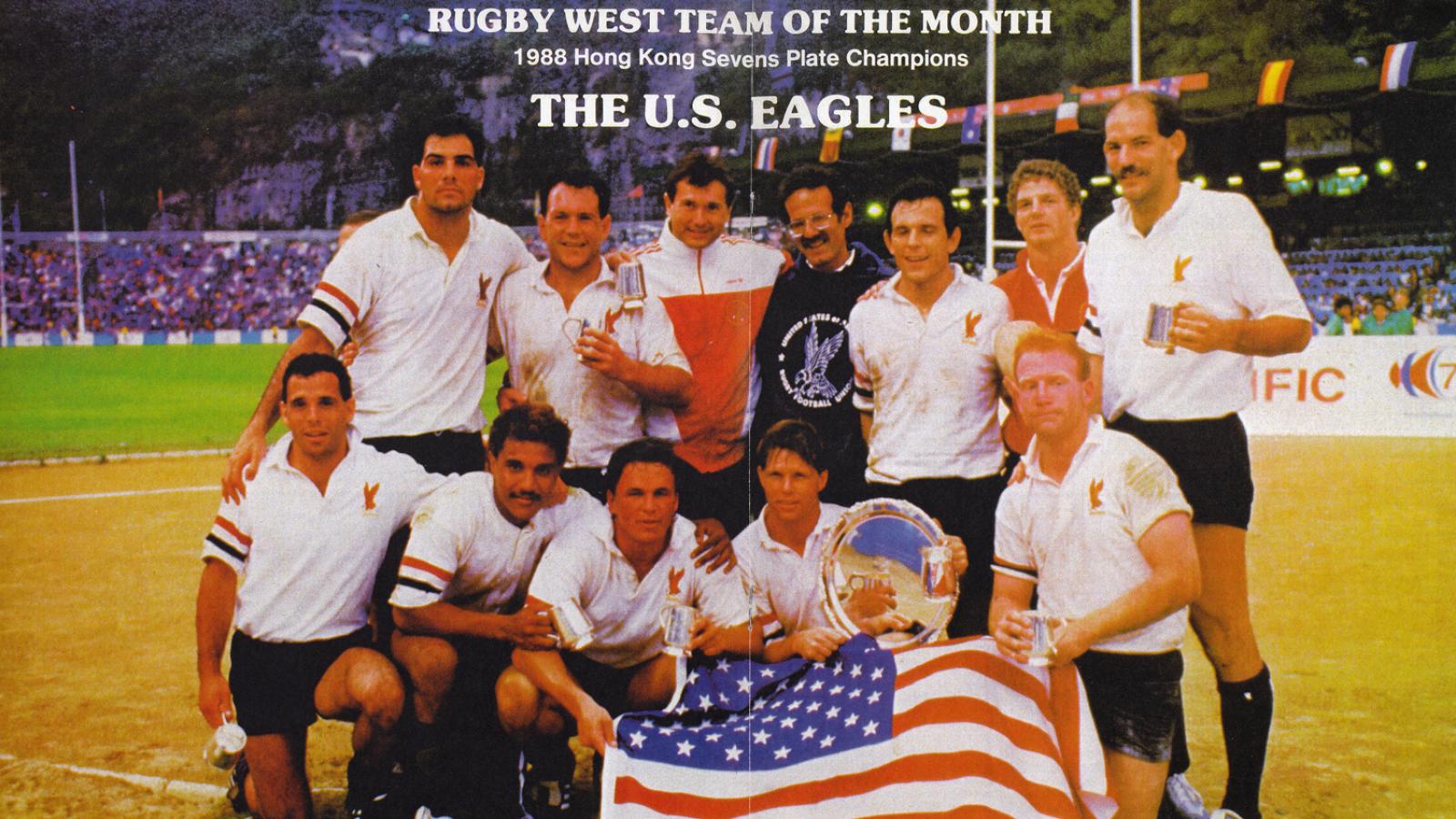Being ignored isn't fun, and being presumptively dismissed isn't a picnic, either, but that has happened to both of the combatants in the CRAA Fall Classic Men's D2 clash.
Auburn was presumptively dismissed in these pages and, frankly, by almost everyone else. It's OK, they get it. Despite continually throwing out championship teams in just about any sport you can name (they have had the best equestrian team in the nation for about a decade now), the Alabama university that gave us Bo Jackson, Charles Barkley, and Cam Newton has usually been an afterthought in rugby.
But a concerted recruiting effort, some smart coaching, and a bit of the COVID rebound effect helped them build a pretty good rugby team that no one was expecting.
(The COVID rebound effect is when young people who might have hesitated at trying rugby before COVID, then started thinking of the opportunity missed when they were prevented from even going outside, and took the plunge when restrictions eased.)
Getting 23-year-old Nick Prather to come in and bring his experience playing for Kentucky as coach was a big move. Athletes want to learn and Prather got them up to speed quickly, and he got them believing a little, and building a chip on their shoulders, too. They didn't need to look far for inspiration—just look at the standings.
"Auburn was consistently last in the SEC before COVID," said Prather. "Now we've won."
They started well this year, beating Valdosta State in a warmup and then tying Georgia Tech in a game they felt they should have won. Then they played what most felt was the top team in the SCRC (the DII conference for SEC and related teams) in Memphis. They lost 12-7. That made many (including GRR) sit up and take notice. A win over Ole Miss, a win over Mississippi and then a forfeit win told everyone very little. Were they getting better?
For Prather, it was obvious they were. He had a young team and an inexperienced team, so he concentrated on defense and on securing phase play with the ball in hand. That basically made it very difficult for teams to score, and then they'd make a mistake and the Tigers would pounce.
In the semis they beat Georgia Tech 24-22, and then in the final basically controlled the match, beating Memphis 25-15 in a game where Memphis scored their last try with no time left.
"We started the game with a 10-phase try by exploiting their 12-13 channel with our forward crashes off 10," said Prather. That caused their defense to spread to that channel and we then came and attacked their weak side near the breakdown. We reorganized when they weren't covering the weak side well enough and switched the field on them.
"Our defense was suffocating from the beginning," added the coach. "The only time they made forward progress was off penalties."
With Auburn winning the lineouts and exerting pressure with a physical style of defense, they didn't give Memphis time or space to come back.
CRAA Championship Weekend Games and Schedule Set
Meanwhile, out in Montana in the Rocky Mountain Conference, Montana State has been waving its hand trying to be seen. Their results have been good, but, like Auburn, other teams struggling for numbers has made it difficult to build a resume. They weren't in the NCR conversation so that made it difficult, too.
They opened in the Jackalope tournament in Wyoming, losing to the DIA Wyoming Cowboys but beating Colorado School of Mines. They went on to take care of Western State and Colorado Mesa. Searching for games they played University of Colorado, who fielded their B side in the first half and C side in the second half—MSU won that game 55-12.
Led by loose forwards Pete Millen (also the captain) and Jackson Ellbogen-Pettersen MSU is also physical and intense. They have a high percentage of experienced rugby players on their squad, and their experience comes from all over. While they do have players who played their high school rugby in Montana with Wasatch, Kalispell, and Missoula, they also have players from North Pitt (Pa.), Titan (Colo.), the Harvey School (NY), Argentina, Fox Valley (Ill.), Eastside (Wash.), Boulder (Colo.), Summit (Colo.), AYR (Ak.), Motherlode (Calif.), Torrey Pines (Calif.), Dana Hills HS (Calif.), and Mad Anthony (Ohio).
That's a massively diverse group more normally associated with some of the major DIA teams—even they end up being somewhat regional in their draw. MSU has players who have played their high school rugby in nine different states, including on both coast, and also a player from South America. About a dozen of their players have been playing between 5 and 10 years.
As is common in successful DII rugby programs, a lot of them are engineering or science students. There's something about that discipline that makes good programs—UMS&T, RPI, School of Mines are just three examples. Of MSU's touring squad of 28, 13 are Mechanical, Industrial, Civil, or Electrical Engineering majors, with three more majoring in sciences.
What does that mean? Montana State doesn't worry too much about accolades; they just get to work.
Auburn vs Montana State kicks off at Mathews Sportsplex in Mathews, NC on Saturday, Dec. 4 at 10AM ET. It will be broadcast live on The Rugby Network>>





